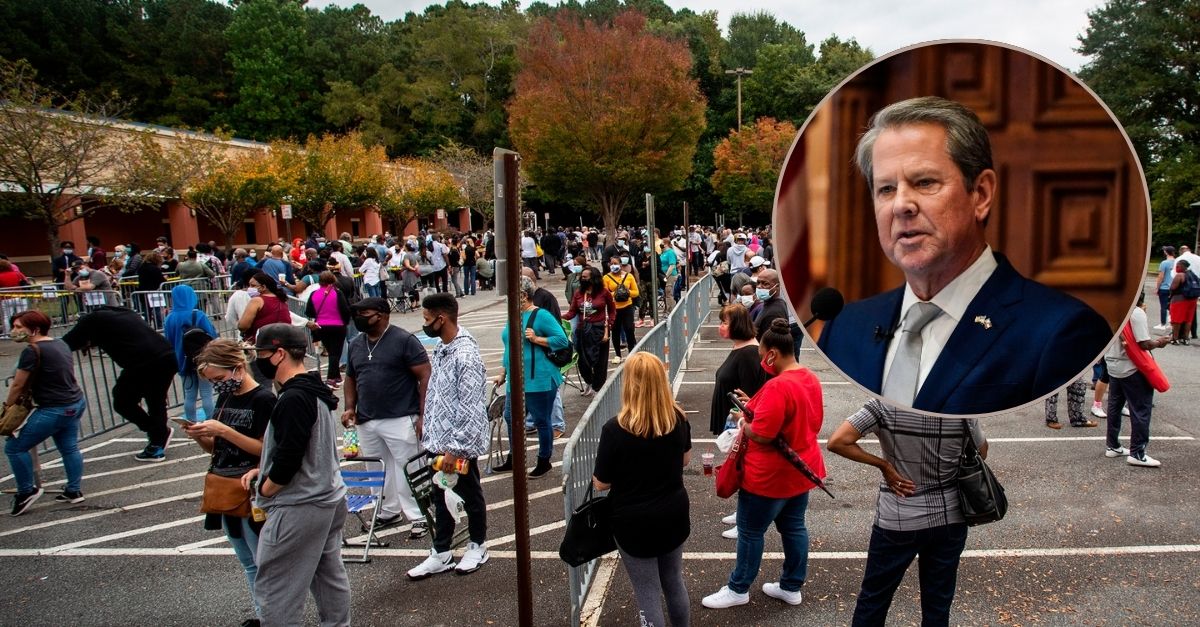Georgia Gov. Brian Kemp signs sweeping election overhaul bill as ACLU threatens to sue
Gov. Brian Kemp's decision to sign his party's bill came at the last minute.
Georgia Gov. Brian Kemp signs sweeping election overhaul bill as ACLU threatens to sue
Erin MansfieldUSA TODAY
The Republican governor of Georgia signed a bill that makes dramatic changes to how elections are run in the battleground state just months before the presidential election.
Gov. Brian Kemp signed the bill on Monday, his spokesperson, Garrison Douglas, confirmed to USA TODAY. Kemp did not issue a statement or comment on the bill.
Kemp's announcement came at the end of one of the last days he had under state law to decide whether to sign or veto the bill. The Republican-led state legislature passed the bill at the end of March, and the American Civil Liberties Union of Georgia quickly promised to sue if Kemp signed it.
Kemp's decision was highly anticipated given his unique predicament in governing a state whose GOP lawmakers often follow former President Donald Trump. Trump rejects the results of the 2020 election, but Kemp refused to help Trump overturn his defeat in Georgia. Throughout the South, Republican legislatures have been making changes to election laws in response to unfounded allegations of a stolen 2020 election.
The new law, SB 189, creates a new process for how counties can remove people's voter registrations from the rolls, provisions that empowered grassroots activists on the right who have challenged thousands of registrations as ineligible, but that the secretary of state's office have said provide limitations.
Prep for the polls: See who is running for president and compare where they stand on key issues in our Voter Guide
The measure creates new procedures for how homeless people register to vote, requiring them to register at their county elections office, while another part of the bill allows counties, in the future, to take voters off the rolls if they are registered at nonresidential addresses. The ACLU has said this would lead to disenfranchising them.
It also allows voters to be removed from voter registration lists up to 45 days before an election. Federal law says states can't remove people from voter rolls within 90 says of an election.
Andrea Young, executive director of the ACLU of Georgia, called the law "a step back for voters’ rights and voting access" and vowed to see Kemp in court.
“This bill will require already overburdened election workers to spend time processing unnecessary voter challenges," she said.
It's the second election overhaul bill Kemp has signed into law since 2020. The previous law, SB 202, made it more difficult to obtain an absentee ballot and banned bringing food or gifts to people waiting to vote. The law also moved control over the leading the state election board from the secretary of state to the legislature, and allowed average citizens to file unlimited numbers of challenges to people's voter registrations.
The bill also makes it easier for third-party candidates to get on the ballot, a provision that can help independent candidate Robert F. Kennedy Jr., nephew of the former president, who has challenged President Joe Biden to drop out of the race if he can't beat Donald Trump.
Other provisions of the law, including removing QR codes from ballots, will go into effect in future years.





